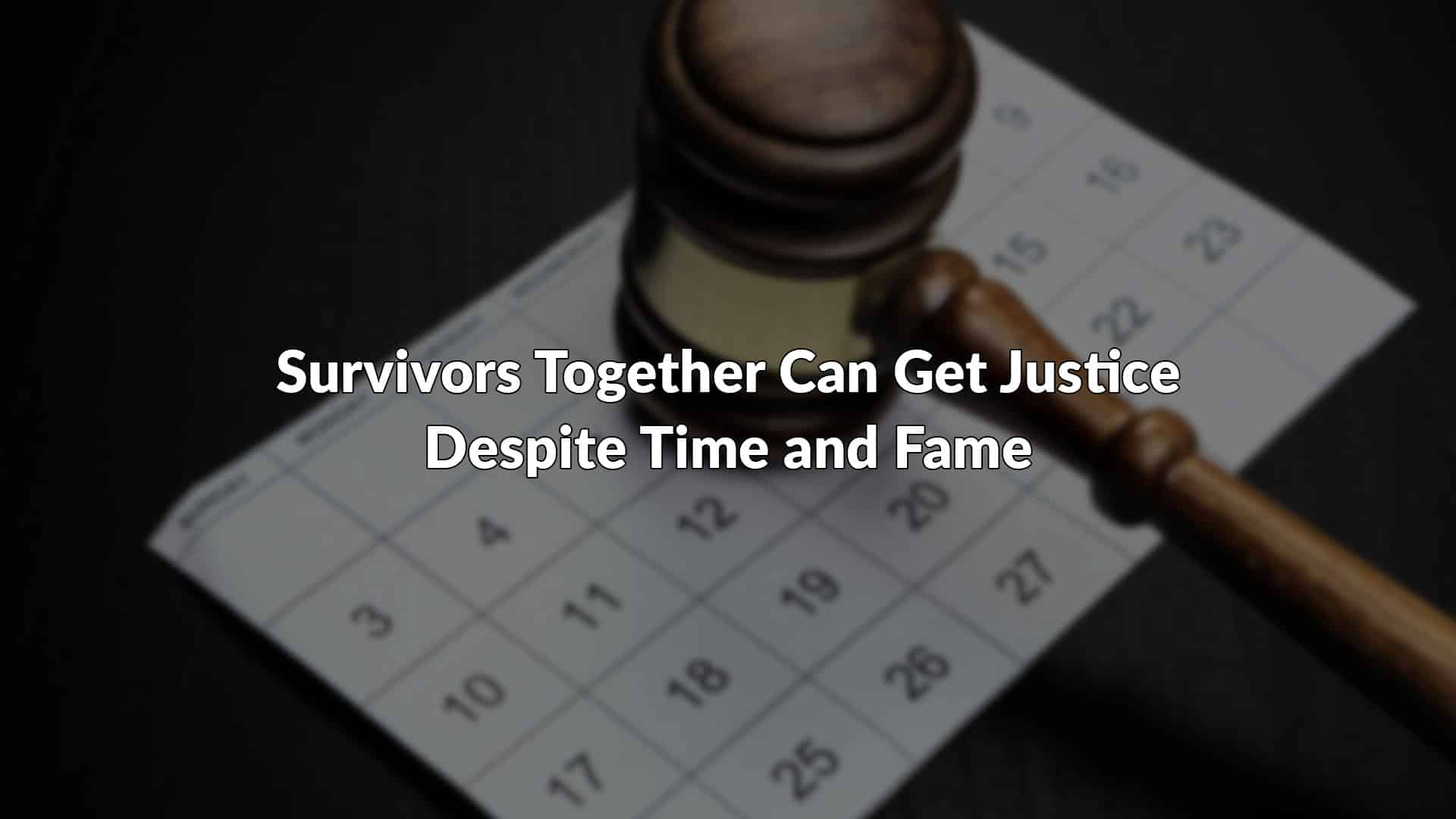Their stories illustrate how sex is leveraged for power: how some uniformed officers coerce sex workers into performing fellatio in exchange for a clean record, how some undercover officers grope women arrested on prostitution-related charges in undercover stings.
There was Larry Seay, a D.C. police officer charged in 2011 with sexually assaulting a prostitute after threatening to arrest her while on duty. And Kenneth Furr, another D.C. cop, convicted in 2012 of assault with a deadly weapon after firing a gun at a transgender woman who refused to have sex with him in exchange for money.
D.C.’s At-Large Councilmember David Grosso notes: “I mean, if you just [browse] past news stories, you certainly know about the cases of transgender sex workers” who have been assaulted by D.C.-area officers. For myriad reasons, they rarely make it to court.
Reporter Stephanie Mencimer detailed a horrifying spate of these assaults committed against sex workers for City Paper almost two decades ago. As many as 40 police officers in the District were arrested annually between 1989 and 1994, she reported.
Violence against sex workers is so ubiquitous as to have become chatter in the D.C. Council’s halls. Lawmakers have “heard for years about police engaging in discriminatory violence against sex workers,” Grosso says, though he notes meaningful conversations about how to prevent it have only recently begun. “Who do [sex workers] turn to?” he asks. “Often, in the past, if they turned to the police, they were not given the kind of support they needed.”
That understatement is at the heart of Grosso’s effort to attempt what no jurisdiction outside of Nevada has managed: remove criminal penalties for buying and selling sex. It is perhaps the city’s most robust and public effort in recent history to introduce legal safeguards for sex workers who say they’ve been assaulted by police officers.
While there exists very little concrete data that fully capture how pervasive claims of sexual abuse against sex workers are across the country, certain reports scratch the surface: New York’s Urban Justice Project says that nearly one in five sex workers report sexual harassment and abuse—including rape—at the hands of police officers. (Incidentally, that figure is the same as the number of college women who report sexual abuse while at a four-year school.)
But only about 10 percent of sex workers who report police abuse ever pursue litigation against the officers. Exacerbating the standard anxiety that survivors of abuse feel when filing a criminal complaint against a perpetrator is the worry that their claims won’t hold up in court. In nearly every state, it is legal, if not outright encouraged, for undercover police officers conducting prostitution stings to touch sex workers. Departments argue that making physical contact with sex workers is the only effective way to collect evidence of a prostitution-related offense.
Director of the sex work advocacy and resource center HIPS, Cyndee Clay, calls this physical contact “common practice,” and notes that it happens “especially in indoor locations like brothels and massage parlors.” She says that at least two sex workers have reported outright assault perpetrated by police officers, or those posing as police, at HIPS annually for the last nine years.
Former sex worker and decriminalization advocate Norma Jean Almodovar has famously referred to this as “raping to rescue.”
Until April, for example, it was legal for police officers to engage in penetrative sex with erotic service providers in Michigan. In Anchorage, Alaska, police officers are embroiled in a furious, protracted public debate about the morality of fondling sex workers for evidence-gathering purposes. In one case, the police chief there referred to this sexual contact as their “right.”
Maxine Doogan, a longtime champion of decriminalization, runs the Erotic Service Providers Legal Education Project, which filed a lawsuit against California’s attorney general in March over the state’s prostitution laws. She argues that the policy world exhibits a profound hypocrisy, empathizing with survivors of sex trafficking while abandoning sex workers who have been assaulted by pimps or police officers: Those who engage in commercial sex against their will are considered “victims,” she says, but sex workers who are “willing participants in prostitution, we’re fair game. [People think] that the criminalization of prostitution makes us public property. That anybody can do anything to us any time they want and get away with it, including the police.”
For the last year and a half, Grosso’s team has collaborated with a coalition of sex worker advocacy organizations based in D.C.—including HIPS, Casa Ruby, the Gay and Lesbian Activists Alliance, the DC Rape Crisis Center, and Amara Legal Center—to draft a bill that focuses on “the human rights of sex workers,” Grosso says, instead of attempting to “criminalize our way out of an issue.”
The comment is a not-so-subtle criticism of the sizeable contingent of lawmakers (in both D.C. and around the country) who have historically treated prostitution as an eyesore. In 1989, a group of D.C. police officers gathered two dozen women stationed along or near 14th Street NW and forced them to walk more than a mile across state lines into Virginia at 1:30 a.m. Legislative “remedies” have been designed to address garden-variety neighborhood complaints, like condoms strewn across sidewalks, instead of the very real and alarming risks associated with engaging in sex work. Ward 2 Councilmember Jack Evans has been a longtime supporter of curbing street-level prostitution by allowing the city to impound vehicles belonging to those soliciting sex.
Not Grosso. His effort, the Reducing Criminalization to Promote Public Safety and Health Amendment Act of 2017, is the culmination of a three-year publicity tour that saw Grosso touting his support for the policy after Amnesty International first embraced decriminalization during the summer of 2015. In addition to removing all criminal penalties for prostitution and sex-related solicitation, Grosso’s bill decriminalizes pandering (loosely defined as the act of helping to facilitate an illegal sexual encounter), and creates a task force of 13 local stakeholders to study the bill’s impact on sex workers, should it become law.
It also grapples with some of D.C. Code’s legal gymnastics, including its prostitution clause, which lumps the crime in with solicitation. In most cases, D.C. police officers will arrest sex workers—particularly trans sex workers—for the solicitation of sex and not prostitution itself, likely because in street-level prostitution cases it’s easier to collect evidence for solicitation. In 2017, 87 percent of prostitution-related arrests have been solicitation charges, per Metropolitan Police Department data. (Arresting suspected prostitutes on charges other than prostitution is a longstanding District tradition; as far back as the mid-19th century, D.C. cops tried to make sex workers less visible by arresting them for larceny, disorderly conduct, or “keeping a bawdy house.”)
In decriminalizing the solicitation of sex, Grosso’s bill could help reduce the number of erroneous or malicious solicitation arrests. Conversely, it would also remove the legal penalties of buying sex for truly violent customers, a sticking point for organizations like Amara, a law office that provides free legal services for commercial sex workers, whose clients are conflicted about how the city should approach those interested in buying sex.
“There’s no consensus among the people we serve with what we want to have happen to buyers of sex,” Yvette Butler, Amara’s policy director, says. “Essentially Amara’s stance is: [While] we recognize that more engagement with law enforcement is typically bad for our clients, we do want to make sure that more exploitation doesn’t happen.” Because listing solicitation and prostitution under different statutes would involve changing D.C. Code—more bureaucratic legwork than merely passing Grosso’s bill—she says advocates have yet to come to a true consensus about the nuances of decriminalization policy in the city.
Butler also notes that the D.C. Code’s current pandering law can serve as a helpful tool for the U.S. Attorney’s Office, which sometimes relies on it to help bring sex traffickers to justice; when a survivor of sex trafficking is no longer a minor, it’s more difficult to prove that she or he was coerced into performing a sex act. Arresting pimps on a pandering charge is a way to sidestep that hurdle—but Grosso’s bill would eliminate that possibility.
Despite the continued debate among advocates about how to best legislate around buying and facilitating sex, Butler says Grosso’s bill has proven unifying: “Almost all” of the advocacy organizations Amara has consulted with back the effort to decriminalize the selling of sex, likely because, despite the handful of cases in which the criminalization of commercial sex acts is useful to prosecutors, the current laws harm exponentially more people than they help.
Butler, who joined Amara full time last year and mainly works with those filing claims in Virginia, says she has three clients who have shared stories of abuse at the hands of officers working in that state—and each of Amara’s staff lawyers has their own list of clients who have made similar claims against police officers in D.C. and Maryland.
“It’s definitely not just a one-jurisdiction issue. It happens in all three jurisdictions,” she says, though it’s hard for her to put a number on how many other similar claims she’s aware of. “I just know that I hear it more than I would like to hear it.”
Grosso’s bill has been referred to the judiciary committee, headed by Ward 6 Councilmember Charles Allen. Its supporters are hoping it won’t languish there.
Original Source: https://www.washingtoncitypaper.com/news/article/20984273/proposed-legislation-would-decriminalize-selling-and-buying-sex-in-dc



